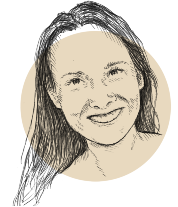A famous photograph taken in 1983 at the University of California, Berkeley, shows a smiling Michel Foucault wearing a cowboy hat – a gift from the delighted students crowded around him. This image would have been unthinkable at the Sorbonne, and even more so at the prestigious Collège de France, where the philosopher taught the history of systems of thought. Something even more surprising, which also revealed Foucault’s dual identity on either side of the Atlantic, is the acid-fueled trip he took through Death Valley with Simeon Wade and his partner, the composer Michael Stoneman.
In 1975, Wade was a lecturer at Claremont Graduate University and an avid admirer of Foucault. He took advantage of the French intellectual’s visit to Berkeley to invite him to a conference as part of the European Studies program he had founded. Wade and his partner hoped to offer Foucault “the fruit of knowledge” by introducing him to LSD. “I thought a trip through Death Valley would inspire the sort of brilliance we associate with the most illustrious old masters,” wrote Wade, who passed away in 2017. “I knew we were taking a risk. Ingesting the philosopher’s stone in such a magical place could have led the great thinker of our time to lose his mind. Or have no effect whatsoever.”

Readers can imagine Foucault dressed in his timeless white turtleneck sweater, a Madras-print jacket, and brown loafers, sitting in the back seat of a green Volvo, his eyes protected from the California sun by an enormous pair of tinted, white-framed glasses that made him look like a “creature from outer space” or “the son of Kojak and Elton John.” Dealt a continuous barrage of questions from Wade and Stoneman, the philosopher spoke of composer Pierre Boulez, writer Jean Genet, and anthropologist Lévi-Strauss, whom he found conservative and haughty, discussed the gay bars of San Francisco, masturbation, and the U.S. carceral system. The epiphany came in the Artist’s Palette area, then at Zabriskie Point, where the three men ingested the psychedelic potion accompanied by marijuana and alcohol, and watched Venus while listening to the Four Last Songs by Richard Strauss, sung by soprano Elisabeth Schwarzkopf. “This evening, I reached a unique new perception of myself,” Foucault supposedly said. “I now understand my sexuality*.”
But to what extent did this experience influence the philosopher’s thinking and work? “He wrote us to say that he had burned the second and third tomes of his history of sexuality, and that he was going to start over,” said Wade to Heather Dundas, who helped get Foucault in California (translated in French as Foucault en Californie) published. According to American historian Michael Behrent, Foucault discovered LSD in California, but also gay culture and individual fulfillment. “His final works, The Uses of Pleasure and The Care of the Self, in which the philosopher strives to rethink subjectivity, are in many ways the result of his time in California.”


Foucault Frenzy
Between 1970 and his premature death from AIDS in 1984, Foucault made a dozen different trips to the United States, “the country with which he had developed the closest of relationships,” according to his biographer, Didier Eribon. He followed in the footsteps of William Faulkner, one of the writers who had inspired him the most, in New Orleans and in Mississippi. Shortly after his rise to fame, he was invited on two occasions to the University at Buffalo, where one of the professors organized a visit to the Attica Correctional Facility, where a series of riots had been brutally repressed in 1971. He then attended the counter-cultural symposium hosted by the Semiotext(e) journal led by Sylvère Lotringer in 1975, which helped popularize French Theory in the United States. He also met Ronald Laing, one of the founders of the anti-psychiatry movement. But his closest relationships developed in Berkeley, partly thanks to anthropologist Paul Rabinow, who shared Foucault’s work with the Anglophone world. In just a few years, the United States entered a sort of Foucault frenzy, despite the fact that the philosopher was violently criticized by conservatives and ignored by American philosophers. This was referred to as “‘Frog Fog,’ a term used by one of the most renowned U.S. intellectual figures to describe French thought,” writes Eribon.
In an article published in 1987, philosopher Vincent Descombes observed that there were two Foucaults: one French and one American. The American Foucault provided the keys to freeing ourselves from disciplinary norms and powers. For example, as noted by François Cusset in his work French Theory, he “contributed to making feminism more accessible by connecting it to questions of homosexuality and the criminalization of the body.” According to his biographer, Foucault found fulfillment in both work and pleasure in the United States, “finally achieving a reconciliation with himself.” He even considered leaving France to live his Californian dream, the highlight of which was probably his hallucinatory adventure through Death Valley.
*French-American essayist Guy Sorman denounced Michel Foucault’s pedophilia in a January 2020 opinion piece for France-Amérique and in Mon dictionnaire du Bullshit, published last February.
Article published in the February 2021 issue of France-Amérique. Subscribe to the magazine.












